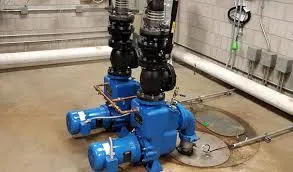Sinhala
- Afrikaans
- Albanian
- Amharic
- Arabic
- Armenian
- Azerbaijani
- Basque
- Belarusian
- Bengali
- Bosnian
- Bulgarian
- Catalan
- Cebuano
- Corsican
- Croatian
- Czech
- Danish
- Dutch
- English
- Esperanto
- Estonian
- Finnish
- French
- Frisian
- Galician
- Georgian
- German
- Greek
- Gujarati
- Haitian Creole
- hausa
- hawaiian
- Hebrew
- Hindi
- Miao
- Hungarian
- Icelandic
- igbo
- Indonesian
- irish
- Italian
- Japanese
- Javanese
- Kannada
- kazakh
- Khmer
- Rwandese
- Korean
- Kurdish
- Kyrgyz
- Lao
- Latin
- Latvian
- Lithuanian
- Luxembourgish
- Macedonian
- Malgashi
- Malay
- Malayalam
- Maltese
- Maori
- Marathi
- Mongolian
- Myanmar
- Nepali
- Norwegian
- Norwegian
- Occitan
- Pashto
- Persian
- Polish
- Portuguese
- Punjabi
- Romanian
- Russian
- Samoan
- Scottish Gaelic
- Serbian
- Sesotho
- Shona
- Sindhi
- Sinhala
- Slovak
- Slovenian
- Somali
- Spanish
- Sundanese
- Swahili
- Swedish
- Tagalog
- Tajik
- Tamil
- Tatar
- Telugu
- Thai
- Turkish
- Turkmen
- Ukrainian
- Urdu
- Uighur
- Uzbek
- Vietnamese
- Welsh
- Bantu
- Yiddish
- Yoruba
- Zulu
Telephone: +86 13120555503
Email: frank@cypump.com
සැප්. . 22, 2024 13:13 Back to list
wastewater treatment plant pumps
The Essential Role of Pumps in Wastewater Treatment Plants
Wastewater treatment plants (WWTPs) are critical infrastructures designed to treat and purify water that has been used in homes, industries, and businesses. Central to their operation are pumps, which facilitate the movement and management of wastewater through various treatment processes. This article explores the vital role pumps play in ensuring the efficient and effective treatment of wastewater.
The Essential Role of Pumps in Wastewater Treatment Plants
In preliminary treatment, pumps remove large solids and debris using screening equipment. This initial step is crucial to protect subsequent treatment processes and equipment. Submersible pumps and centrifugal pumps are commonly used to transport influent wastewater to the screening stage. They are designed to handle the abrasive materials often found in raw wastewater without causing damage.
wastewater treatment plant pumps

Once the large solids are removed, the wastewater progresses to primary treatment, where it undergoes sedimentation. Here, pumps circulate the water to facilitate the separation of solids from liquids. This separation is vital for reducing the organic load on the treatment plant. The pumps used in this stage need to be efficient and reliable, as they help maintain optimal flow rates for effective sedimentation.
The secondary treatment stage is where biological processes are employed to further reduce pollutants. Aeration tanks, often equipped with specialized pumps, introduce air into the wastewater, promoting the growth of microorganisms that break down organic matter. The design of these pumps is critical; they must provide adequate oxygen levels while ensuring uniform mixing for optimal microbial activity.
Lastly, in tertiary treatment, advanced filtration and disinfection processes occur, often facilitated by pumps that move water through media filters and disinfection systems such as ultraviolet (UV) light. These pumps play a crucial role in delivering the treated water, ensuring compliance with environmental regulations and protecting public health.
In conclusion, pumps are the unsung heroes of wastewater treatment plants. Their ability to efficiently move water and regulate flow is essential for the various stages of wastewater treatment. As technology advances, the development of more efficient, reliable, and sustainable pumping systems will further enhance the effectiveness of WWTPs, supporting environmental protection and water resource management. Consequently, investing in pump technology and maintenance is vital for the sustainability and resilience of wastewater treatment systems worldwide.
-
ISG Series Pipeline Pump - Chi Yuan Pumps | Energy Efficiency&Compact Design
NewsAug.03,2025
-
ISG Series Vertical Pipeline Pump - Chi Yuan Pumps Co., LTD.|High Efficiency, Low Noise, Durable
NewsAug.02,2025
-
ISG Series Vertical Pipeline Pump - Chi Yuan Pumps | High Efficiency, Low Noise
NewsAug.02,2025
-
ISG Series Vertical Pipeline Pump- Chi Yuan Pumps Co., LTD.|High Efficiency&Compact Design
NewsAug.02,2025
-
Heavy-Duty Mining Sludge Pumps - Wear-Resistant Slurry Handling
NewsAug.02,2025
-
Horizontal Split Case Pump with GPT-4 Turbo | High Efficiency
NewsAug.01,2025










